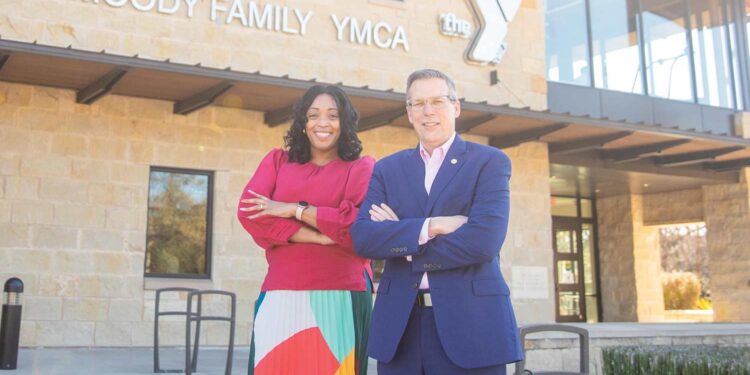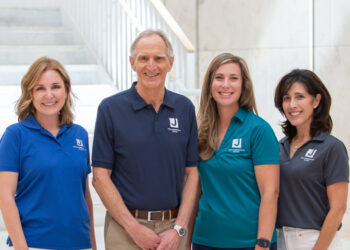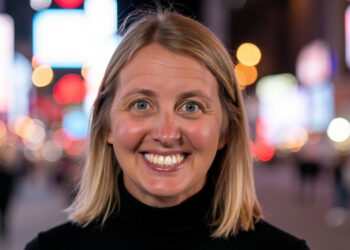Founded in 1885, the YMCA of Metropolitan Dallas in Dallas, Texas, has been listening and responding to the community’s most critical social needs for more than 135 years. From year-round water safety, staff training in Mental Health First Aid, providing for families during the COVID-19 pandemic, and addressing the need for a multi-dimensional approach to diversity, equity and inclusion (DEI), the Dallas Y is making sure it’s open for all.
Leading the Dallas Y, Curt Hazelbaker, the president and CEO, has spent his entire career with the YMCA since 1983 as a day camp counselor and bus driver. “I spent the summer seeing firsts through the eyes of six-year-old boys,” said Hazelbaker. “The first time riding a horse, swimming in a lake or shooting a bow and arrow — it was great, and I was hooked on the Y.”
Hazelbaker’s extensive history and commitment to the Y — from roles as a camp director, teen director, executive director, vice president of operations, senior vice president and chief operating officer, to president and CEO — is why he takes the words “for all” so personally.
“To do our job, we’ve got to make sure the Y is open for all,” he said. “Those are the two most important words to me in our mission statement.”
Also leading by the phrase “for all” is Rodrigua Ross, the vice president of DEI at the Dallas Y. Ross began her Y career over 21 years ago when she moved from New York to Dallas and accepted a job working with teens. Since then, she has dedicated herself to supporting under-resourced and marginalized populations, leading her to the role she holds now.
Currently, Ross oversees all DEI work for the entire organization, including that which is outward facing such as advocating for, interfacing with and providing services for any kind of marginalized population. “It also means holding a mirror up for ourselves to make sure we continue on this journey to be antiracist, all inclusive, work on our hiring practices and level set our internal biases so we’re the best organization we can be for our communities,” said Ross.
Altogether, Hazelbaker, Ross and the Dallas Y team are ensuring they continue to help build a healthy spirit, mind and body for all. One of the key ways they are doing so is with a new strategic plan for 2021 called Building Stronger Communities for All.
A New Strategic Plan
Hazelbaker explained the new strategic plan is built around four main buckets – youth development, healthy living, organizational capacity and social responsibility – with specific tactics under each.
1. Youth Development
Within this bucket, the Y will continue to address academic achievement — with a technology focus — as well as mental health, belonging and well-being. When putting the plan together, Hazelbaker said 750 different people were interviewed, from community leaders to board members, and mental health kept coming up.
While the Y is addressing mental health for all, Hazelbaker said he wanted his team to be involved in a plan for the specific concerns facing kids and teens. Those included anxiety around tests, pressure to perform in school and getting into the right school. To take action, the Dallas Y is training full time staff in Mental Health First Aid.
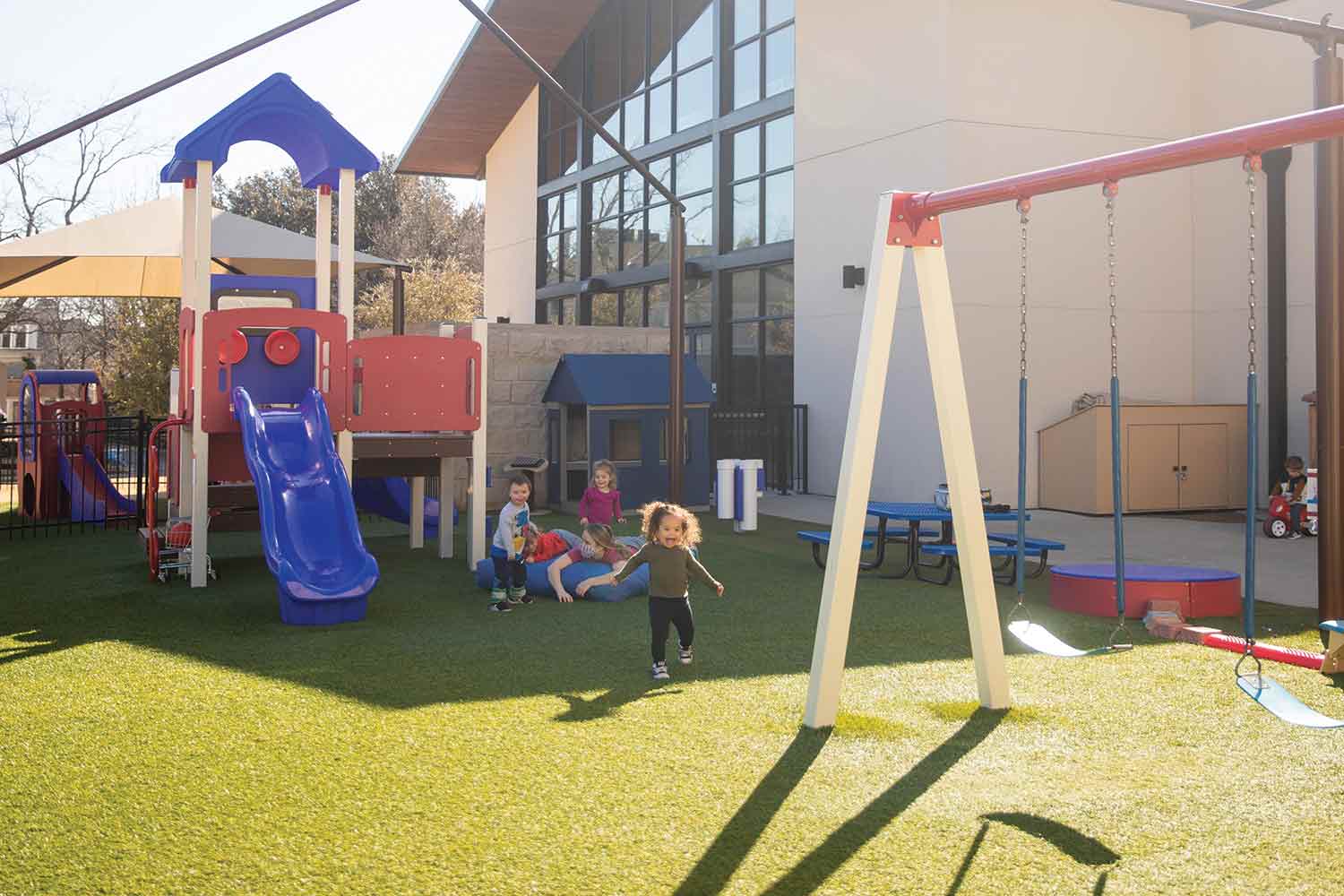
“It will help our staff identify issues that may be there and then connect,” said Hazelbaker. “If it can help kids and families talk through some things, I think it’s an opportunity we should be spending more time with, and we are and will continue to do so.”
2. Healthy Living
A large component of this bucket includes collaborating with healthcare organizations. The Y already works with many hospitals and medical providers, but it plans to deepen the collaboration by talking to hospital systems about having a presence in some of the Y branches.
“The community is comfortable with the Y, they trust the Y, and having a medical presence in the Y may get some people to come to the Y who are not comfortable going to the doctor’s office,” said Hazelbaker. “A partnership has a lot of potential for serving more people and trying to make a healthier community.”
Another tactic under the healthy living bucket is expanding healthy living programs. The intent is magnifying programs such as childhood obesity, family obesity and diabetes prevention programs by providing them where people are located.
3. Organizational Capacity
This bucket pertains to a number of topics, including:
- DEI: Ensuring the Y is welcoming, safe and accessible for all.
- Membership and Programs: Providing the best experiences, serving more people and impacting lives for personal growth.
- People: Recruiting, retaining and educating staff and volunteers.
- Resources: Financial and philanthropic efforts are sustainable and growing.
Specific tactics include supplying resources, raising funds to support the work they’re doing and ensuring the Y is delivering the best experience for members, program participants and guests. Plus, the Y looks to provide the tools and training staff and volunteers want and need.
4. Social Responsibility
A large social responsibility for all community rec centers is water safety. As one of the leading causes of death for children, Hazelbaker said childhood drowning is entirely preventable, and something the Y needs to take a bigger role in. The Y offers programs such as safety around water and urban swim, but it will also continue to partner with others in the community to make drowning prevention a bold goal, proving its importance.
Another social responsibility of the Y is serving outside of its four walls. Already started in 2020 through the Catalyst Initiative — also known as the COVID-19 Responsive Initiative — the Dallas Y has been and will continue to deliver programs and needs outside the Y to the community.
Ross described the initiative as standing in the gaps. “In all of our service areas, we identify where there is a need, where the marginalized population is, and then we either provide it ourselves or we link up with our partners to make sure those folks can get what they need,” said Ross.
During the pandemic, some of the initiatives included: food and essential distribution; baby diaper depots; partnering with organizations to host blood donation sites and computer donations to help families working and learning from home; providing academic spaces to further help youth with schoolwork; emergency childcare for essential workers from hospital staff to individuals working in grocery stores; and even setting up mobile distributions to combat transportation issues.
“We recognized many people had transportation issues and couldn’t necessarily get to a Y, so we set up mobile distributions and would pile up our Y buses and vehicles, then drop into communities and apartment complexes to distribute items to the residents who lived there,” said Ross.
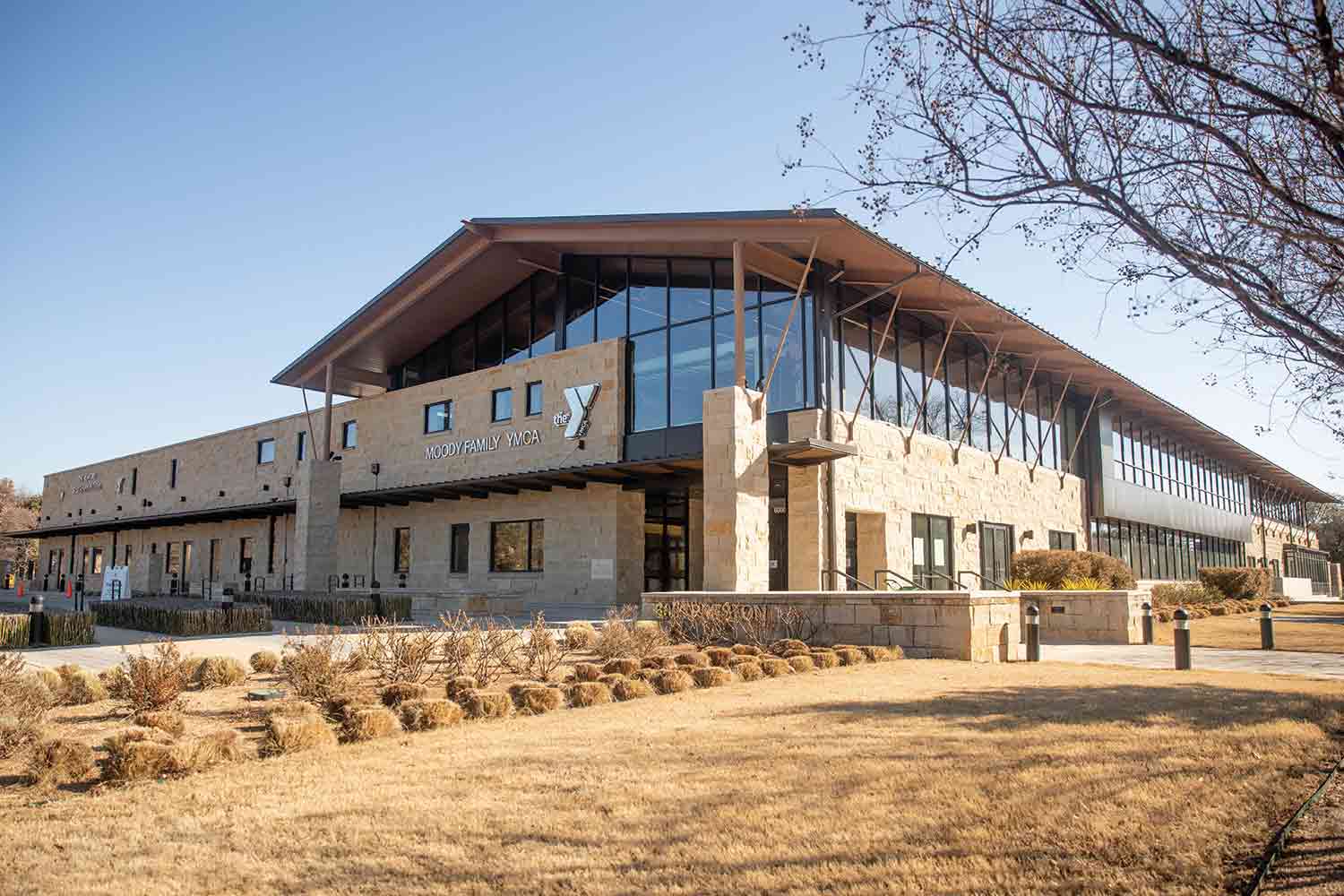
The third tactic under social responsibility was born out of the Catalyst Initiative after seeing that in some specific demographics there was a need for an increase in a multi-dimensional approach to equity. This resulted in the Dallas Y teaming up with Reliant to create Racial Equity and Innovation Centers across nine Dallas Y locations.
Equity and Innovation
The Equity and Innovation Centers, powered by Reliant, are beacons of hope and opportunity that provide support to individuals, families and the community. The Y partners with organizations with expertise and passion to provide equitable access to basic essentials, support communities through COVID-19, and advance diversity and inclusion to help end systemic and generational barriers, like racism and inequalities. The Y gets support, volunteers and resources from individuals, organizations and corporations to address specific issues in the communities they live in and serve.
Each center has staff and volunteers who help serve communities in a variety of ways. For example, one equity center may focus on food and housing insecurity. In a different part of the community, another center may focus on the technology gap and English as a second language.
“They’re doing things to reach those marginalized populations that are important for that community,” explained Ross. “Locally, what they do may be different because it really is steeped in what that community needs in order to be the best version of itself. I am really excited by the incredibly innovative and transformative stuff coming out of these equity centers.”
To be able to do this work, Ross said the most important thing is listening to what your community and members tell you. Avoid going into a community with a plan, assuming you know what the community needs. “You have to talk to the people who are experiencing it and get in proximity of whatever it is you’re trying to address,” said Ross. “If you’re trying to look at housing insecurity, then go talk to people who are housing insecure, go to places where folks who are in those situations reside or hang out, and understand the situations they’re in.”
For community rec centers to continue work in DEI, such as providing Equity and Innovation Centers, Ross said it needs to feel like it’s part of everyone’s responsibility. “Like Curt always says, it’s ‘baked in’ to everything we do,” she said. “You don’t need one person just hammering, because it can also feel a bit lonely
by yourself.”
The Next Five Years
When thinking about the Dallas Y’s next five years, Hazelbaker said his answer was completely different in March 2020 than it is in 2021. Pre-pandemic, his team was focusing on an aggressive and exciting growth strategy with plans for renovations, expansions, new facilities and raising money to provide more scholarships.
Like most other organizations, when the pandemic hit everything changed. Staff and volunteers quickly adapted what they were doing, to what needed to be done. “That work was things we were doing to some extent, but not to the level we have done through the pandemic and continue to do,” said Hazelbaker. “What I’m excited about in the next five years is still looking forward to our growth strategy. Needs magnified by the pandemic aren’t going to go away, so we will continue the work we’ve done for the future with equity centers leading that effort.”
Ross echoed Hazelbaker, saying she’s most excited for the Dallas Y to continue shifting their culture as an organization and become leaders in DEI work who are comfortable living on the learning edge. “We always want to be in learning mode, to understand more, advocate and be the best possible,” she said. “I hope this association gets comfortable living on this learning edge, and more people understand and accept the fact that DEI work is everyone’s responsibility.”
Photos by Katie Chiu


